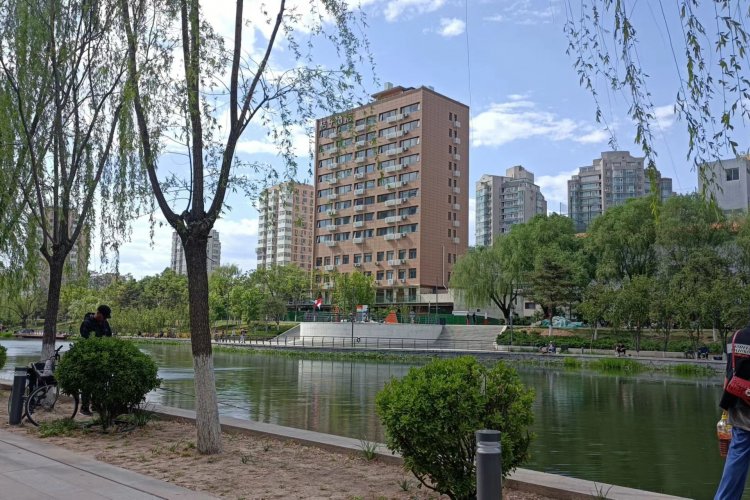Modern Life is Rubbish: Unregulated Recycling & Beijing’s Stinky Landfills
Recycling is a vexed issue in China. On the one hand it’s a obviously good thing that much of the country’s waste is recycled, though Beijing still seems headed for a waste crisis in the near future as landfills rapidly reach capacity – more on that in a moment. The problem with China’s recycling industry is its highly fragmented and unregulated nature, which creates unsafe conditions for recyclers and dangers for consumers. The past week has seen disturbing reports of unsafe plastics making their way into takeaway food containers, and the sleeves wrapped around disposable chopsticks.
Over at Shanghai Scrap, American writer Adam Minter discusses the source of the problem, with an account of a trip “traveling in one of China’s major plastics recycling zones.” He refrains from identifying the exact location to protect the identity of those who introduced him to the area, but his description points to the structural problems underlying recycling-related safety issues.
“It is a remarkable place, with anywhere from 10,000 to 20,000 separate plastic recycling plants manufacturing materials for some of the world’s largest electronics manufacturers – and some of North China’s take-out food palaces… As we pass one village where plastic bags twist and swirl in the wind and get tangled in the trees, our driver begins to laugh with his colleague in the passenger seat: Apparently, some of the businesses in this area manufacture plastic bags that they market as suitable for food use, when they’re most definitely not.”
Minter offers a pretty simple economic explanation for why waste plastics are making their way into food containers: “The raw material for cheap food containers – low-grade recyclable plastics – is inexpensive, and the demand for low-cost take-out boxes is high. Equally important, [the area’s] recycled plastics industry is a source of tax revenue (and others sorts of revenue) made more important by the fact that this region’s once vibrant agricultural economy has been all but destroyed by drought, water diversion, and extensive contamination.”
Pollution destroys agricultural industries, creating the need for more polluting industries so locals can make ends meet.
While we’re on the subject of waste, Jonathan Watts of the Guardian published a sobering article last Friday on Beijing’s burgeoning rubbish disposal problem. He writes: “Beijing's waste problem – and China's – is expanding as fast as its economy, at about 8% each year. With millions more people now able to afford Starbucks, McDonald's, Kentucky Fried Chicken and other elements of a western, throwaway lifestyle, the landfill sites and illegal tips that ring the capital are close to overflowing… According to the local government, the city of 17m people generates 18,000 tonnes of waste every day – 7,000 tonnes more than the capacity of municipal disposal plants.”
Watts quotes a city government official saying all the city’s landfills will be full in four years.
The authorities’ immediate plan to tackle the stench from the landfills is hardly a long-term solution: “Beijing is to install 100 deodorant guns at a stinking landfill site on the edge of the city in a bid to dampen complaints about the capital's rubbish crisis.”
The article doesn't specify what the guns will actually be firing into the air, but Beijing could certainly do without more chemicals in its atmosphere.
The Guardian has also published a series of images by local photographer Wang Jiuliang, which you can view here. If images like the one below are anything to go by, it seems melamine might not be the only unwanted ingredient finding its way into the milk supply. The caption states: “This landfill is right near a river bank, where waters have been polluted with the decomposing toxins from the waste. Dairy cows from a nearby farm come to the river daily to drink, and root among the trash for things to eat.”
According to an article in today’s Global Times: “In Beijing, 95 percent of garbage landfills are sub-standard and pose a serious threat to the groundwater… Ma Jun, Director of the Institute of Public and Environmental Affairs, an environmental NGO, said that at least 75 percent of Beijing's water supply comes from groundwater, which is not generally the case for international cities. Beijing's groundwater level fell 9.7 meters in 10 years from 1999 due to over-exploitation, according to Friends of Nature, another environmental NGO.”
Related stories :
Comments
New comments are displayed first.Comments
![]() Ava0301
Submitted by Guest on Tue, 03/30/2010 - 20:09 Permalink
Ava0301
Submitted by Guest on Tue, 03/30/2010 - 20:09 Permalink
Re: Modern Life is Rubbish: Unregulated Recycling & ...
OMG, it's awful, right?
Our roast lamb come from rubbish.
I think I can't accept this....
Validate your mobile phone number to post comments.


